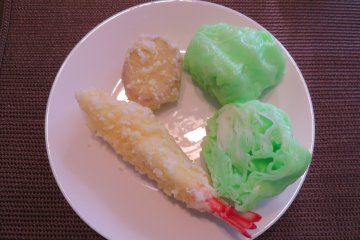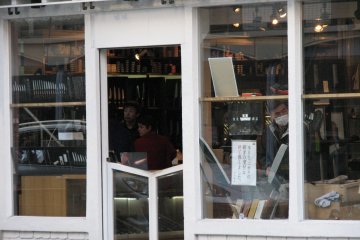While the mass production of goods has made previously exclusive items affordable and accessible to a greater range of people, there is still a place in this world for high-quality craftsmanship. The Tsubaya store (逸品鍔屋) in Asakusa is the best place in Tokyo to explore what this means for people who know their way around a kitchen. Every chef knows that a good knife is essential to the craft, and Tsubaya is renowned as a producer of fine blades.
Starting in 1952 as a family business, Tsubaya now has an international reach, shipping knives all over the world. The blades are not forged on site these days, instead being hand-made just outside of Tokyo in Ibaraki prefecture, but there is a mock-up hearth at the back of the shop to provide atmosphere and an idea of the process. Proprietor Saito-san speaks English well enough to explain the stories behind his wares, and all staff are experts who can help you make informed decisions about your purchase. Customer service is just one of the many aspects of Tsubaya that put it a cut above the competition.
Browsing around the store, note the wood-like grain patterns on some of the knives. This is characteristic of Damascus steel, which is produced by a folding technique that strengthens the blade. The strongest knives at Tsubaya have 101 layers, and of course the beautiful Damascus patterning. Another type of distinctive blade contains notable dimpling. The purpose of these dimples is to prevent sticking during the slice. Some of the most interesting knives take on the whimsical appearance of sea creatures such as fugu (blowfish) and octopi. Saito-san explains with a smile that there is no improved functionality with these--they are merely for fun.
A rack of colorfully packaged ceramic blades can be seen near the front of the shop – the ones stamped with a stylized "R" have been entirely made and assembled in Japan, and they are exclusive to Tsubaya and certain department stores. The others are assembled in China and have plastic handles. The latter are still good, but the difference in quality is apparent and worth paying extra for.
Tsubaya is an enjoyable stop on anyone's Kappabashi stroll. The lineup of specialty cutlery on display, from versatile kitchen knives to the 680,000-yen katana-like maguro (tuna) blade housed behind glass near the front entrance, is as fascinating as any museum exhibit.
















